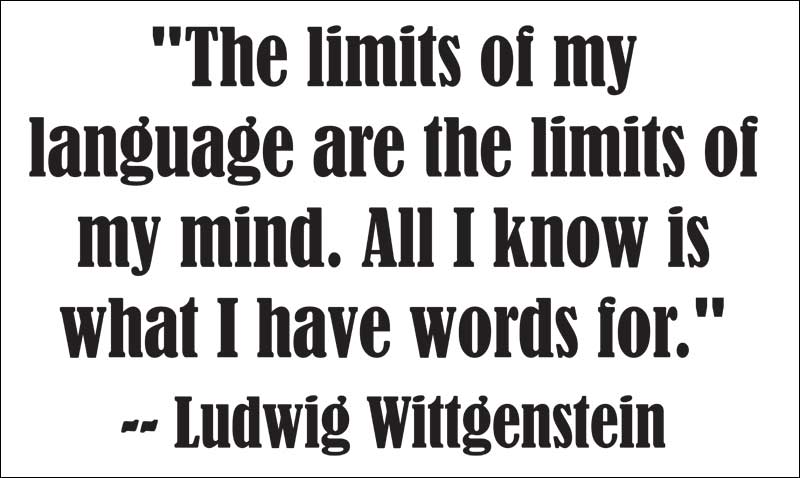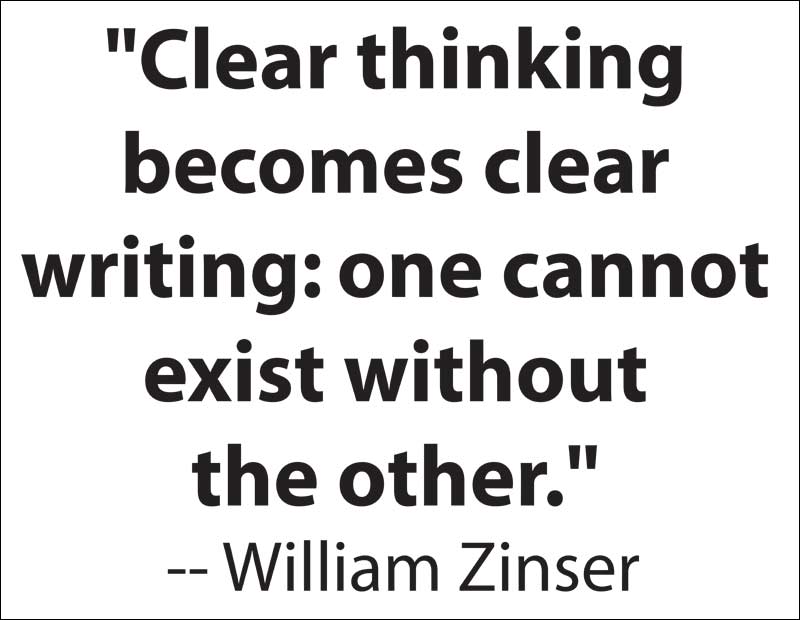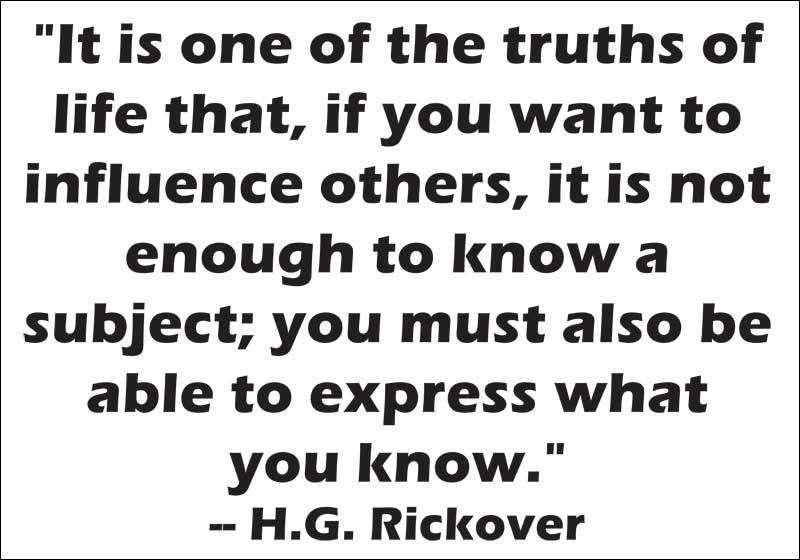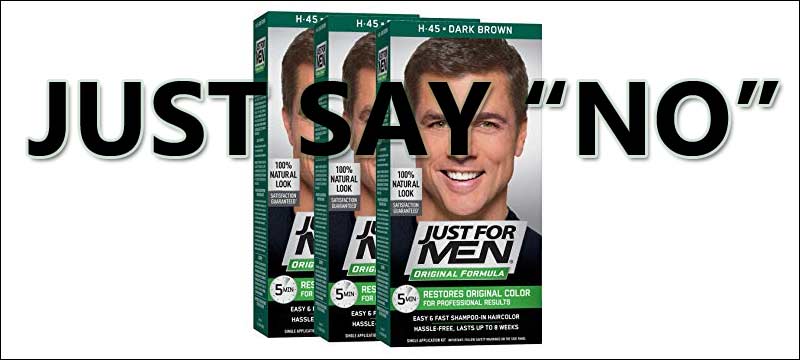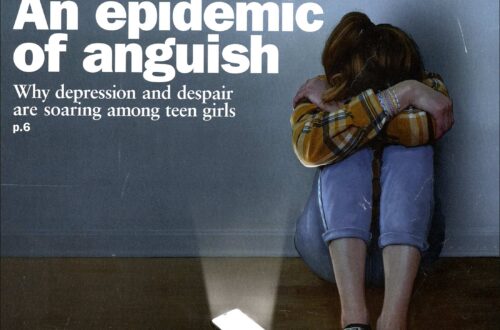I read recently an article in Men’s Health titled “These Are the Unwritten Rules That All Guys Follow” that I would like to speak to — yes, I read magazines like “Men’s Health,” “Men’s Journal,” and “Maxim” on my Apple Newsfeed. They provide a welcome counterbalance to the humorless screeds (usually complaining about politics) which blanket the more “serious” publications like The New Yorker, The Atlantic, or Washington Post. Balance.
The article listed was based on a Reddit thread that has some 5,700 responses. It summarizes a few of the main “unspoken rules” that men supposedly follow:
- Do not crowd next to each other when using the urinal in a restroom.
- No conversation while using public restrooms. (“No talking at the urinal. Ever.”)
- Not looking around while peeing or peeking over or under the bathroom stall doors.
- If someone buys you a beer, you buy the next beer.
- Don’t be afraid to kill spiders.
- Don’t leave a friend hanging when he offers you a “high five.”
It would be hard to argue with these rules, but I would offer a few highly subjective rules for men of my own. Others may feel free to disagree. They are entitled to their opinion, as I am free to have my own.
DO NOT GET WEIRD ABOUT FOOD
What do I mean about “weird”? This is what I mean: food is the fuel we use to power our bodies and stay alive. It provides the materials necessary for the sustenance of life. Eat mostly healthy food and in moderation; but don’t spend exorbitant amounts of time and energy on food.
To be more specific, avoid the following:
- No counting calories
I have seen many women, and a few men unfortunately, use iPhone apps to count their total caloric intake for the day. The idea is to limit the calories one eats and thereby lose weight. If you strictly monitor what and how much you eat, you can consciously day-by-day and month-by-month lose weight — burn more calories than you take in. This is the theory.
Then there is the reality. The problem is that counting calories will require significant time and effort: Planning and then chronicling exactly what one eats and entering the data into your records renders the act of eating into a complicated and stressful ritual. There are strict rules, and a person might leave a meal still hungry. If you “cheat” and go over the calorie limit, feelings of guilt and failure might follow. There is pressure involved in eating. Who needs more pressure in their life?
Life does not have to be this complicated. Eat mostly healthy food, and eat until you are full. Then stop eating. Avoid food that is obviously horrible for you, like ice cream or french fries or milk shakes or the like. Eat a bunch of vegetables and rice and some protein, too. If you eat mostly healthy food, everything else should take care of itself. Eat unhealthy food occasionally, and don’t make a big deal out of it.
Instead of counting calories and fretting, work out and work out hard. You could try and enter the form of exercise and how many minutes you did it into your iPhone app, and then that would allow you to eat more calories for that day. You could spend all that time and effort in the calorie counting game. But don’t play this game. It isn’t worth it. Instead measure the quantity of totally sweat-drenched and disgustingly smelly clothes you produce after a hard workout. If you are constantly leaving a lot of sweat-soaked clothes in the washing machine, you are getting the calorie burn that you want.
On a hard Sunday morning of tennis, I will soak two sets of clothes. I deposit this “nuclear,” sweaty-smelly laundry into the washing machine right when I get home. After a hard workout I will then eat mostly healthy food until I am full, and then I stop eating. Drink tons of water. Cheat once in awhile and eat something not so healthy. Work out to earn your appetite and food afterward, and then eat to recover from your workout. Don’t overthink it. Don’t make it more complicated than it needs to be.
If you do this, you will not be overweight. Or at least not very overweight.
As I have gotten older, I have acquired a layer of fat around my waist. Even when I workout intensely over a week or a month, that layer does not go away. I have concluded that this is a function of age and have made my peace with it. Maybe if I starved myself it would go away, but nothing is worth starving yourself for. This layer of fat around my belly probably will get bigger with age, although it hasn’t yet; people almost always get bigger with age, I have noticed. I can’t control this fat I have, but I can control my workouts and eating (mostly) healthily. Control what you can control, and ignore the rest.
Life as it is can be overwhelming with all the details clamoring for one’s attention. Why make it more complicated by counting calories and turning mealtimes into stress-filed rituals? Use that energy instead for more positive endeavors — like joining a mountain biking team or scuba diving club, where one will make new friends and burn tons of calories naturally. Attend a live music concert or go dancing. You want to sit there counting the calories in your food instead?
Counting calories is an activity most associated with women, and I urge women to stop doing it, too. But if you are a guy and counting your calories, you really want to think about what you are doing and why. How did you get sucked into this damaging dynamic?
It might be that people with unusual metabolisms and rare health disorders might need to count calories. I am not a licensed dietician. Your mileage may vary. But this is how I see it.
- No weighing yourself
Weighing yourself and getting a number is similar to counting calories and getting a number. For the same reason, don’t do it.
Spend your brain cycles in the effort to hike up your local mountain with friends or win your USTA league with your tennis teammates. Exercise vigorously on almost a daily basis, and then eat mostly healthy food afterwards. That is the winning formula.
Don’t weigh yourself. Don’t spend your precious time and energy thinking about a certain number of pounds you should weigh, and don’t plan your activities and your meals around getting down to your “ideal weight.” Wake up, do your daily job, afterwards workout until exhaustion, and then eat copiously — then sleep. Repeat.
I have not owned a scale for weighing myself since I lived with my parents during high school in the early 1980s. Did I weigh myself last year or the year before that? No, I have not weighed myself in decades. Yes, they weigh me when I go to the doctor’s office, and I sort of pay attention to that number. But I don’t pay much attention. I am sure I have gone up and down a bit in my weight over the years and the decades. I just don’t think that number all that important. I refuse to pay much attention. I will devote my energies to more productive ventures.
If my wife or my daughters were to acquire a scale and bring it into our house, I might raise an eyebrow in concern. If they suddenly started weighing themselves daily, I would become alarmed. It might be time to have a conversation on what is really important in life. Why is the number that is your weight so important? What again are the values important to our family? “Are you fat?” might be a less important question than these ones — “Are you fit?” “ Are you strong?” If the answer to those two questions is “yes,” then who cares how much you weigh? And if you are “fit” and “strong,” you are rarely going to be overweight.
You still might not be skinny, but who cares? If you are not super-skinny like some runway model, it does not mean you are overweight. Be happy with Aristotle’s Golden Mean: moderation in all things. Do not fixate on what you appear to be; focus on what you really are. Reputation is what people think you are; character is what you really are. If you know you are healthy and secure in yourself, your external appearance takes on less importance.
Women most often wrestle with these issues, I know. That is bad enough. But if you are a man and going down this sad road of obsessing over your weight and physical appearance, reconsider your thinking.
- No extreme diets
I have a cousin who swore by a diet where he ate almost all protein and next to no carbohydrates. It kept him from getting fat, he claimed. He made bacon for me one breakfast, and he said he ate bacon almost morning and steak every evening. He embraced protein; he abjured carbohydrates. He never ate bread, for example. He claimed this regimen kept him slender.
I have made no special study of this diet, but it offends my common sense. Eating red meat almost all the time and little else? Maybe this keeps the excess pounds off, but what does it do to your cholesterol count? To the likelihood of developing cardiovascular diseases? Or some other health disorder?
And nowadays this same cousin preaches the new doctrine of fasting intermittently, in addition to never eating carbohydrates. I have heard this called the Keto diet, and I have read a little about it. Supposedly the body learns to burn calories more efficiently when you shock it with a 24 hour fasts occasionally. The body learns to burn fat instead of carbs. Or something.
As in with counting calories, this process of keto diet seems complicated. But at least when you are counting calories you can eat a balanced diet. My gut tells me there is going to be some future consequences as a result of pursuing extreme diets. All red meat, all the time? Really?
And even if this will not one day give you blocked arteries and heart disease, think of all the other things you could be doing with your time and energy. All the books you could read instead of focusing on food. The new languages you could learn. The organizations you could join and people you could meet.
Instead you want to wage a religious crusade-like campaign to alter radically your meals, follow an extreme diet, and lose tons of weight?
If you are terribly overweight, then maybe such drastic action is necessary. But if you are simply trying to emulate this Instagram celebrity with a “thigh gap” or “six pack abs,” maybe you should think again. Or better yet, take Instagram off your iPhone.
- No testosterone injections
I have a number of peers who give themselves daily testosterone shots, but only one of them has low testosterone levels and was prescribed the drug by a medical doctor. Most take it to attempt to regain the hormone levels they had when they were much younger men. The testosterone shots gives a man in his fifties the muscle building properties and libido of a man of thirty. My own doctor told me there was an “upside” to testosterone shots, and not much of a “downside.”
I thought about taking testosterone, as I described two and a half years ago when I turned 50.
But my gut told me that introducing a hormone into my body for months or years at a time would change my endocrine system. I am getting older, and lower testosterone levels is part of getting older. Why fight aging? I can maintain and build muscle naturally without testosterone, and I am not unhappy with my libido level. Why mess with my endocrine system when nothing is really wrong with it? Is getting older a problem which merits a remedy?
And what if I were on testosterone for ten years and then went off it? Would my body have forgotten how to make testosterone? Had I changed things by introducing hormones to it? Created a real problem by addressing a problem that existed only in my mind?
Is aging, and having less testerone, really so bad? I don’t think so. And there is an equanimity to aging (re. having less testosterone) that I appreciate. You will not likely find me wrestling on the ground with some younger man because he cut me off in a “road rage” incident. I don’t need “roid rage” in my life, thank you very much. One friend confided to me he started having violence dreams about fights in prison when he started injecting testosterone and human growth hormone everyday with a syringe. No thank you.
Again the same questions: Isn’t life complicated enough already? Why complicate things unnecessarily?
Act your age, my fellow American men. Unless you have abnormally low levels as proven by a blood test, unless a doctor recommends it for your health, don’t take testosterone.
- No dying your hair
Yes, most of my “unspoken rules for men” revolve around vanity and one’s physical appearance. This one is no different.
I have heard of men dying their hair to get the gray out of it. This is almost de rigueur for middle aged women, I understand, and that is bad enough. But men dying their hair?
I am not talking about younger men dying their hair pink or purple for strange reasons of their own. I am not talking about men wearing makeup for the same meretricious reasons as do women, as urged by Farhad Manjoo. I am talking about middle aged or older men dying their hair to appear younger than they are.
The wonderful lady who cuts my hair once confided to me that her husband dyed his hair black to get the gray out it. He wants to look younger, she said. I was surprised but also filled with a mild disgust. “Dying your hair, dude? Really!?! They ought to revoke his man card! Take away his license!”
I can hear someone claiming that I do not understand the importance placed on physical appearance in our youth obsessed American popular culture. They might say I am a tenured high school teacher not too far away from retirement so I don’t care, but that for others looking young can be the difference between getting hired or not in a competitive job marketplace. They might add that I am married and care little about attracting the ladies. That I don’t appreciate how people judge you on your appearance. That appearing “youthful” is better than looking older in America.
Maybe.
I still think dying your hair is lame. For men and women. But especially for men.
And I do care about looking good. I make efforts. Maybe not that many. I just don’t care enough to dye my hair. End of argument.
In fact, I am proud of my gray hairs. While dropping my younger daughter off at her elementary school last week, she said she did not like my “white hair.” This symbolizes her father getting older and maybe passing from the scene sooner rather than later, a scenario which understandably scares her. “I earned these ‘white hairs’ taking care of you and your sister! In grading all those student essays! In writing their college application recommendations!” I am proud of my age. “White hair” comes with age. Why fight it? It is not a symbol of shame. It is a badge of honor. For men and women alike, in my opinion.
For the record, I have suggested that my wife stop dying her hair. She is having none of it. She would not consider not dying her hair. But I made my argument to her.
This much is for sure: I will have more gray hair next year compared to this year. I will look worse in photographs next October compared to this October. I will be older. That is OK. That is normal. Is aging a problem? Does it require a solution? Can one age naturally? Age as gracefully as possible?
- No online dating
I know this one will be controversial. People will say, “Online dating apps are just how romance works nowadays.” I have not been single and in the dating marketplace since the latter days of the 20th century, so I have no personal experience with this. So I could be wrong, but I don’t think I am.
I see dating apps as much the same problem as job seeking apps. The quality people get hired by those they know in real life — their connections open doors, their reputations serve them, all earned over years or decades. Not the Internet. The same with dating apps. Quality people invested in their communities don’t need them.
After my mom died in 1996, my father got almost all his dates through his local Our Lady Queen of Angels parish in Newport Beach, CA. Overall, it worked out well for him — much better than Internet dating apps would have, I strongly suspect. After dating for several years, he met his second wife through the local Catholic community. And my father met his first wife — my mother — when their parents set them up on a blind date in 1964. My parent’s mothers — my grandmothers — were friends and knew each other at the local Corpus Christi Church in Piedmont, CA. These mothers had unattached young adult children, thought they might make a good couple, made the necessary arrangements for them to meet, and the rest is history.
People had been meeting and dating for a long time before the advent of social media dating apps around 2008. You don’t need them. Put down your phone and look around you. Talk with that lady sitting at the next table. Participate in a book club or take up the piano. Join a faith community. Sing in a choir. Plant in the community garden. Volunteer at an animal shelter. Meet people in real life first and then maybe date them.
If I were to find myself suddenly single, I think I could meet available women through my tennis community. I would talk to the ladies who know me. I could ask them about their female friends who might be interested. Old school courtship — like with my father.
It could work. I think it might work. Who knows?
But I would surely try that before I took the drastic step of dating strangers I met online through social media apps. In fact, I might just refuse ever to indulge Internet dating. I will hope so.
So if I ever needed a new job, I would utilize my existing social networks and my professional reputation — not online, but in real life. The same in dating.
Some might object that online dating is easier, faster, and more convenient. Download the app, sign up for the service, and wait for possible dates to contact you. Maybe it is too easy. I would want a layer or two of vetting first. I want someone I trust to vouch for that person. Or I would want to use my own five senses plus my gut instinct to size a person up in real life. Date a total stranger from the Internet sight unseen? Not ideal.
On the other hand, several of my friends have met and married women they met via online dating services. So maybe I don’t know what I am talking about.
DO NOT CRITICIZE, CONDEMN, OR COMPLAIN (or at least greatly reduce it). NO WHINING!
I read recently the following excellent article by author Megan Holstein.
“Never Criticize, Condemn, or Complain”
by Megan Holstein
Megan claims that she had fallen in with a negative friend who constantly bemoaned the world, and this negativity was contagious. Then they would go online via social media and engage with further negativity. They would “criticize, condemn, or complain.” Megan claims that we are the sum of the five people we spend the most time with — we are “cognitively primed” by the community and thoughts that most closely surround us. As Holstein says, “As your words and actions shape them [your associates], their words and actions shape you.”
I had heard that claim before in terms of obesity. If your friends are obese, you have a much greater change of becoming obese yourself. If your wife smokes or drinks, you are more likely to do the same. Suicide has long been known as a socially communicative act — they can occur in “clusters,” especially among the impressionable young.
Holstein explains the following:
I had a best friend once with whom I complained a lot. The basis of our friendship was a mutual attitude of victimhood, a belief that the world had done us wrong. In one sense, it was true; like anyone, both of us had suffered misfortunes in our lives. But we took it way too far, and we complained endlessly about it. Everything from the weird dude at the mall to systemic prejudice against the mentally ill was fair game for our complaining, and since there’s a lot going wrong in this world, there was a lot for us to complain about. Most of our conversations were analyses of these things gone wrong, either at a micro or macro scale, and how they negatively impacted us.
It was terrible for me. I began to see only what was going wrong in my life, not what was going right. What did go right I saw not as a blessing to be grateful for, but only as further evidence of an unjust world — and what went wrong I began to see as unchangeable.
The longer I stayed friends with her, the more negative my outlook became. Our habit of complaining together spilled out into other parts of my life. My conversations with other people began to revolve around perceived slights, both personal and political. My conversations with my then-boyfriend turned more and more critical. It even began to affect my health; as my attitude toward the world became one of victimhood, I failed to take care of myself the way I should, and the chronic health conditions I’ve been fighting since middle school became dramatically worse.
When I noticed what this negativity was doing, I immediately resolved to turn things around. When she pointed out something shitty about American culture, I empathized with the people who let it turn out this way. When she complained about her position in life, I pointed out things that were going right for us. When she said something shitty about my then-boyfriend, I stuck up for him.
It was for naught; whatever positive things I had to say, she swiftly shot down. Her reply was quick as a whip: “you’re naively optimistic.” The subtext: if you had it as bad as I did, you wouldn’t be.
Eventually, we parted ways.
Holstein decided to distance herself from this negative friend and consciously to be more positive. She became much happier as a result. Megan was able to achieve more and focus on her own goals, rather than falling into the trap of whining and seeing the worst in the world. Holstein concludes her essay thusly:
If we hope to have a life full of happiness, achievement, and joy, the words we say must reflect that. If we want a happy marriage, we must use the words people use in happy marriages. If we can’t use those words because they are a lie, we must (except for private, intimate conversations) say nothing. Like our parents taught us; if you have nothing nice to say, say nothing at all.
Holstein’s hopes for hoping for a “life full of happiness, achievement, and joy” are like a breath of fresh air in our present cultural milieu.
Being negative seems almost like the biggest problem I see around me today in the United States. There is a powerful streak of anger in America right now, and too many give it free reign. They are making a mistake, in my opinion. They are doing harm to themselves, as well as to the larger body politic. They are not in control of events; events are controlling them. Almost by definition to be enraged is to be out of control — to be “besides yourself” with anger, or “out of your mind” with rage. Sir Francis Bacon claims the following about losing control:
“Whoever is out of patience, is out of possession of his soul.”
Bacon then quotes Seneca in claiming that unrestrained anger makes us act like bees, buzzing and swarming all over — a perfect description of enraged Americans arguing politics on Twitter. The bee stings once and dies in the effort, yet Americans sting each other constantly with their words but don’t die. Instead they grow more frenzied and incensed. Seneca argues that anger unbridled is often more hurtful to a person than the injury that provoked it. How true! Our anger prompts us to seek revenge on our enemy, but in the end we poison only ourselves. It is a fool’s errand.
I am not saying to ignore the negative and pretend problems do not exist. Nor am I saying we should never examine what problems we have or why they are problems — I did just that in my last blogsite posting about homelessness in California. To vent can be helpful, and to identify what is wrong is the first step to improving a situation. The key is not to let “criticizing, condemning, or complaining” overtake you. This is easy to do, especially among the young-ish. Older people should have more wisdom but often don’t. There is nothing so common and jejune as the “negative Nancy” who sees nothing but bad out there and becomes tedious in tiring your ear with the sad story of it all. Don’t be that person.
Famous UCLA basketball coach John Wooden claimed his father taught him the following:
“Don’t whine. Don’t complain. Don’t make excuses. Just get out there, and whatever you’re doing, do it to the best of your ability.”
This is a solid model worthy of emulation, in my opinion. Some complaining will make its way through the door, but don’t give way and let it take over the entire house. I love how the poem Desiderata ends:
“And whatever your labors and aspirations, in the noisy confusion of life, keep peace in your soul. With all its sham, drudgery and broken dreams, it is still a beautiful world. Be cheerful. Strive to be happy.”
I have seen people — mostly young-ish people — knocked so out of whack by President Trump and toxic contemporary politics that their whole mental health balance is dangerously precarious — or worse. Everything is horrible and getting worse in the United States, according to them. Much is bad right now, but much is good. Maybe with age they can come to see nuance. They can appreciate the long view of things.
When I talk like this my brother reminds me that it feels good to indulge a fit of righteous indignation. “Anger makes you feel alive. It gives off heat. It warms you up. People like it!” he explains. Americans go on rants against their political opponents on social media or cable television. “President Trump!” “Global warming!” “Abortion!” “Sexism!” “Racism!” “Religious discrimination!” “Voter suppression!” “Illegal immigration!” “Gun control!” “Socialism!” What a giant waste of spirit it all is. The squandering of precious time and life energy. Don’t be that person. The anger you feel might enliven you temporarily, but in the end it will leave you hollow and burnt out. The dark energy of negativity will leave you feeling empty. Hatred is tiring and takes from you. Love, in contrast, perpetually fills a person up. Hatred is a weed bitter and poison-filled. Love is a tree evergreen and true. Hatred is commonplace and rank. Love is rich. It rejuvenates. It adds to and builds up, while the other tears down.
Which of the two, hatred or love, do you see more on display nowadays in the United States?
Don’t be that angry person always venting your spleen — spitting contempt into the teeth of others. Rise above your anger and master it. Control your anger or it will control you. Beware. If you let it, anger will eat you up inside.
“If you want to be at peace, use peaceful words. Choose wisely how you approach your neighbors and the wider world. You will receive from the universe that which you put out,” Megan Holstein might say.
I would agree.
—
Gentle reader, you might ask me, “Why did you post your ‘unspoken rules for men’ here on your personal website? Why not create a Reddit account and contribute to the original thread on their website? You will get more feedback on the Reddit site than on your website.”
That is an entirely fair question, and I will answer it.
I am not primarily interested in feedback. In my writing I am interested in clarifying what I myself think. Who am I? What do I believe in? What is happening here? What is my relationship to others? How should I live? These are questions I can only answer by wrestling with my thoughts and attempting to gain clarity through composition. Through the discipline of the writing process, I try to convert vague impressions and semi-developed thoughts into clear convictions and coherent arguments, or at least I try to. I only know that for which I have words for; I don’t know what I think until I make the effort to write it down. Many a man lives a stranger to himself. I try to avoid that fate by taking the time to check in with myself. I sit down, turn inward, and think. I write.
I have a job. I have a family. I have manifold responsibilities in terms of driving my kids to school and back, or to soccer practices and games. I am the captain of my men’s 4.5 USTA tennis team. I prepare lessons, grade papers, and write college letters of recommendation. I work my New Year’s Resolutions. I have a house to upkeep and a car to maintain. Taxes and other bills to pay. Automobile, housing, dental, and medical insurance premiums. Groceries to get and meals to prepare. Laundry and dishes to clean. Issues come up and must be addressed with my daughters or my wife. The water heater goes out, the sink backs up, or my car gets a flat tire. The business of life. It never ends. It can grow wearisome, even as it is full of richness.
My website, in contrast, is just for me. It is where I can think. Where I write. It is where I engage in the creative process. It is where I grow my soul. My free moments are occupied in writing. Others may paint, sculpt, or make music. I write.
It gives me an enormous sense of fulfillment to write up my thoughts on this phenomenon or that. The act of creation — of writing. At best, I am only semi-concerned with feedback and how others may feel about my thoughts. At worst, I care not at all. I don’t write primarily for others. I write mostly for myself.
So I stay off Reddit. And Medium. And Facebook. And Twitter. And Instagram. Ad nauseam.
But with my personal website I persist.
“Let us cultivate our garden,” Candide suggested.
Indeed.
